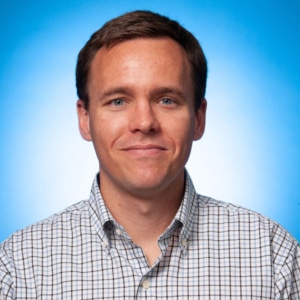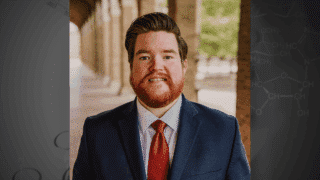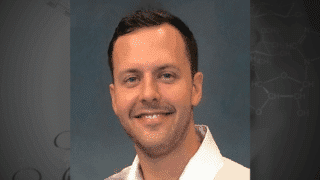 Dr. Geoff Miller was selected as a PCC Fellow in our 2014 funding cycle, and he has gone on to continue his successful career in anti-doping in the Sports Medicine Research & Testing Laboratory (SMRTL) in Utah. In our interview below, Geoff shares more about his research and his PCC fellowship experience.
Dr. Geoff Miller was selected as a PCC Fellow in our 2014 funding cycle, and he has gone on to continue his successful career in anti-doping in the Sports Medicine Research & Testing Laboratory (SMRTL) in Utah. In our interview below, Geoff shares more about his research and his PCC fellowship experience.
Background
Tell us about your educational background.
I grew up in St. Louis, Missouri. In 2010 I received a bachelor’s degree in Biochemistry from Wartburg College in Waverly, IA, where I also played soccer. After undergrad, I attended the University of Utah for graduate school, initially entering the Biological Chemistry program. I finished with a Ph.D. in Pharmaceutics and Pharmaceutical Chemistry (now the department of Molecular Pharmaceutics) from the University of Utah College of Pharmacy.
What educational/professional opportunities helped you reach this point in your career?
I got my start in science after my junior year of undergrad. I was selected into the American Physiological Society (APS) Summer Undergraduate Research Fellowship program. In that program, I worked for Dr. Willis Samson at Saint Louis University in the Pharmacological and Physiological Science Department.
In 2013, I began working as a Research Intern at SMRTL, and when I finished the Ph.D. in 2015, I applied for the PCC Fellowship to begin full time work at SMRTL. I have been at SMRTL now for almost 10 years.
Why did you choose to go into anti-doping research?
Growing up, sports were a big part of my life. I played several different sports on organized teams and played the rest for fun in the backyard. Anti-doping seemed like the perfect blend of sports and science, and the work continues to keep me interested after 10 years.
Research
What do you find most interesting or exciting about your research area?
The field is always changing. There are constantly new drugs being released or repurposed that need to be studied in the context of anti-doping. There are also consistently new technologies being released. Taking all of these ideas together, there’s often an immediate real-world impact to the research that we are doing, and to me, that adds to the excitement of the work.
What were your key findings from your fellowship research, and what are you currently studying?
During the fellowship, we studied the effects of plasma volume on the Athlete Biological Passport, and specifically, we looked for ways to correct for changes in plasma volume. This idea has since been expanded upon very well by other anti-doping research groups and even now work continues in this area.
At this time, we are in the process of studying several different topics. These topics include understanding confounding factors to analytical results, assessing the stability (and, in some cases, instability) of specific drugs in urine, and we also continue to run a number of projects related to self-collection of samples and analysis of prohibited substances in dried blood spots.
What impacts has your research had on the field of anti-doping?
Over the past 10 years, we have most importantly contributed significantly to advancing anti-doping testing in dried blood spots (DBS), as it relates both to the collection of samples and to the analysis of samples. In addition to advancing the field of DBS testing, we have also contributed heavily to understanding perturbations in the Athlete Biological Passport, both caused by use of prohibited substances (steroid and hematological profiles) and caused by general confounding factors, such as altitude exposure and exercise. Finally, we have also contributed to the better understanding of long-term metabolism of various prohibited substances.
Goals and PCC Benefits
How has PCC funding helped enable your research success?
In addition to the valuable support provided by my PCC fellowship several years ago, our team here at SMRTL publishes 4-5 studies per year, and the PCC provides the funding for most of these studies.
What have you gained from your fellowship experience?
For me the fellowship I think worked as it was designed to. While the focus was on the research, it allowed me to learn how an anti-doping lab operates. I have been able to take the experiences from both the research department and laboratory operations to reach the position that I am in now.
What are your long-term research or career goals?
Continue to push the anti-doping field forward, especially in the understanding of drug metabolism and detectability.



